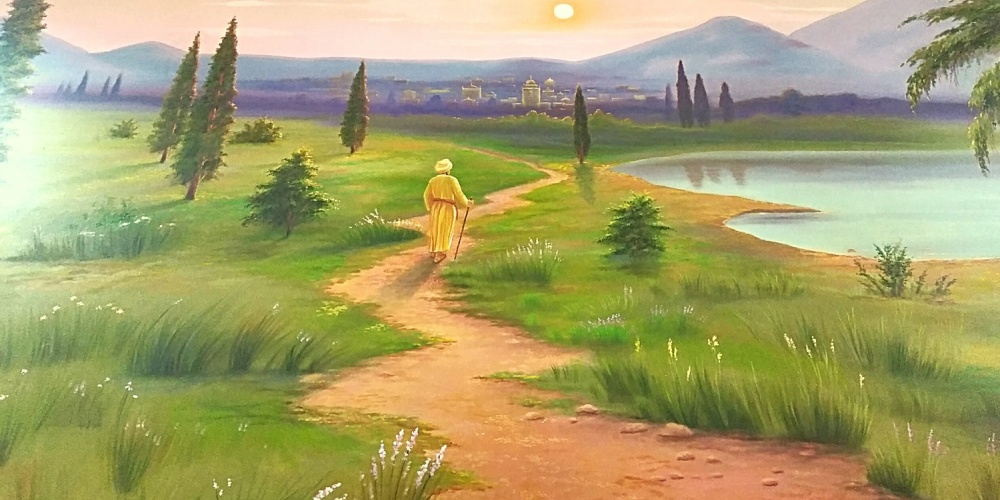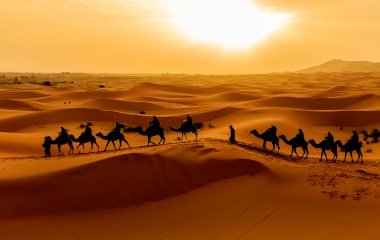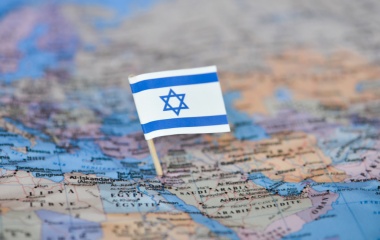
“And a lot of livestock did the children of the Reuven and Gad have and they saw the Ya’azer, and Gilead areas that were good for livestock” (Bamidbar 32:1). Forty years of aimlessly wandering in the desert have passed, and clearly, the message from the meraglim episode has not sunk in. Jewish people are continuing to reject the Land of Israel. Yet the argument of the tribes of Reuven and Gad differed from that of their parents’ generation who were led astray by those meraglim.
That generation feared what would happen to them if they tried to conquer the Land. They feared an implacable enemy would wipe them out. Forty years later, some of their descendants feared not so much entering the Land of Israel, but rather leaving the fleshpots of the Diaspora. What would happen to our material possessions, they mused. The land outside of Israel is so fertile, the economy so robust that it would be foolhardy to leave it all behind. Not surprisingly, in the four short sentences of their request they mentioned mikne, livestock, no fewer than five times. Yet the name of G-d is not even mentioned once. When one's main focus is making money, it really is quite hard to find room for G-d.
Moshe was faced with a challenge no less severe – in fact, more severe – than what faced the new nation forty years earlier. It is one thing to make a huge mistake once, but to repeat that same historical mistake so soon thereafter can be fatal. Moshe rightfully worried that the people would once again become despondent and refuse to enter the Promised Land, perhaps losing the land for all eternity.
Moshe was angry and his response showed it: “And Moshe said to the Gadites and the Reubenites, ‘Are your brothers to go to war while you stay here? Why will you turn the minds of the Israelites from crossing into the Land that the Lord has given them? That is what your fathers did when I sent them from Kadesh-Barnea to survey the land’” (Bamidbar 32:6-8).
Forty years earlier, it was G-d who was angry: “I will strike them with pestilence and disown them, and I will make of you a nation far more numerous than they!” (Bamidbar 14:12). G-d was going to start all over, giving Moshe a more obedient nation. “How long will this people spurn Me, and how long will they have no faith in Me despite all the signs that I have performed in their midst?... How much longer shall that wicked community keep muttering against Me?” G-d continued.
G-d may have been angry, but not Moshe. He pleaded with G-d to forgive the people, invoking the 13 attributes of mercy that G-d had taught after the sin of the golden calf. What can one expect from recently freed slaves? “Pardon, I pray, the iniquity of this people according to Your great kindness, as You have forgiven this people ever since Egypt” (Bamdibar 14:19). It will take time to take Egypt out of the Jew. “And G-d said, I forgive per your words[1]” (Bamidbar 14:20). G-d forgave; the nation would survive but this generation would die in the desert.
Forty years later G-d is silent, but Moshe is angry. And yet – perhaps learning from his previous bouts with anger[2] – Moshe entered into negotiations with the recalcitrant tribes. Since they seemed to have nothing personal against the Land, he hoped the crisis could be nipped in the bud. And it was.
He warned them of the terrible consequences of the meraglim episode, featured the role of G-d prominently, and chided them for mentioning their cattle before their children. The negotiations went well and a deal was struck. The tribes of Reuven and Gad could stay where they were on the condition that they join the Israeli army. They would have to answer in the negative the rhetorical question of Moshe: “Shall your brothers go out and fight while you stay here?” (Bamidbar 32:6). Thankfully, the wayward tribes got the message and “said to Moshe, we will do as you have ordered. Our children, wives, (and only afterwards) property and livestock will remain here in the cities of Gilead. Meanwhile all our special forces shall cross over for battle before G-d, as you have said” (Bamidbar 32:25-27).
For those of us who live outside the Land of Israel - and for those who live inside, this story requires much soul searching. For people like myself, we need to answer the question of Moshe: “Shall your brothers go out and fight while you stay here?” Even if aliyah may not be on the horizon, what are we doing to help develop the Land of Israel? And especially today, there is much we can do even from afar.
As we bless the month of Av this Shabbat, we are most cognizant of the need for unity amongst the people of Israel. G-d granted the Jewish people two previous opportunities of sovereignty, and neither lasted even 100 years. We all know to what our Sages attribute the loss of our land some 2,000 years ago – apathy, hatred, and an inability to work together. It matters not what the issue is – our right to the Land is dependent on our ability to talk to one another, not to vilify the other and to compromise. Let us all pray that we learn the lessons of the past so that we have a future in the Land.
[1] It is this verse that serves as a central theme on Yom Kippur, linking the chet haegel and chet hameraglim. Both were grievous sins, but under the circumstances were understandable and hence G-d offered forgiveness.
[2] One chapter earlier, the laws of kashering vessels were given through Elazar and not Moshe as “since [Moshe] came to anger, he came to mistakes (Rashi, Bamidbar 31:21). This, Rashi notes, is just one of many places where Moshe’s anger led him astray; after the deaths of Nadav and Avihu, after the death of Miriam and the lack of water.



